Verena Zeiner, a conversation
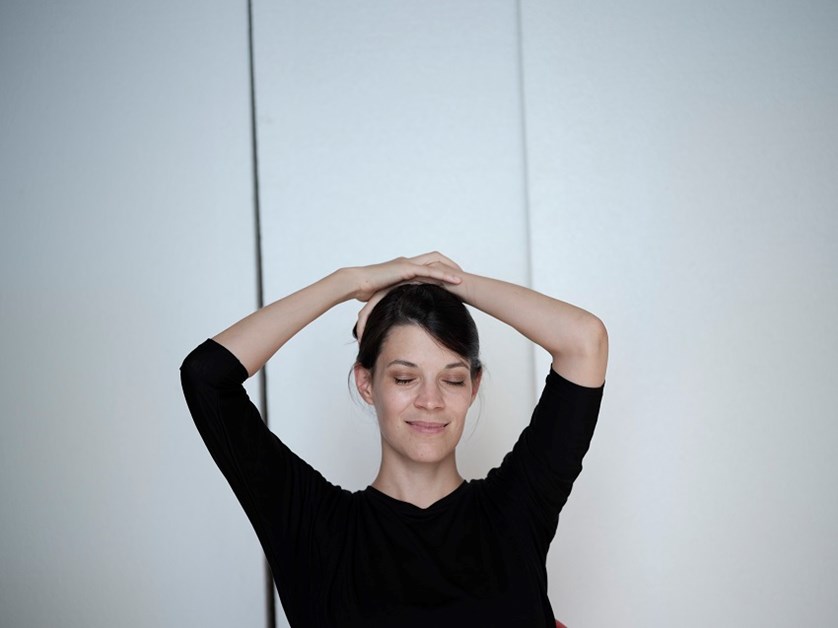
© Ian Ehm
On August 2021 I had a conversation with Verena Zeiner in Vienna, Austria.
She is, as described on her website, a pianist, composer, improviser and pedagogue, based in Vienna. Her studies in Music and Movement education/Rhythmics, Jazz piano and Real Time Composition brought her to Vienna, Brussels, New York and Tel Aviv. Improvisation is the main focus of her artistic works. Her music is strongly influenced by Jazz and the approach to music it implies. Other vital sources of inspiration are movement, dance and bodywork.
Verena Zeiner leads her own bands and composes for them, performs in various ensembles, works with dancers, is founder of Fraufeld, a platform dedicated to increasing the visibility of female musicians, teaches improvisation at the University of Music and Performing Arts Vienna and leads workshops on improvisation and diverse music- and movement related topics internationally.
In 2020 Verena Zeiner was awarded the "Anerkennungspreis des Landes Niederösterreich" for music.
Jazz’halo spoke to her on a beautiful morning at the Welt Cafe in the heart of Vienna.
How old were you when you discovered your love for music, especially for the piano?
Verena Zeiner : I was a child. I was about eight years old and I didn't really decide to play piano. But we, my parents and I, coincidentally met a pianist, a lady who just moved into our small village where I grew up. They suggested that I could try playing piano and I did. And after the first lesson, I realized that this is something that has to stay in my life and that I want to keep doing. I told them that I want to be a piano teacher when I grow up… I didn't know, at that time, that you could be just a performing musician too. But I am also a piano teacher these days… Although I grew up in a big family, I have two brothers and two sisters, my parents decided, OK we will support her in that. They were no artists themselves, but could sense that it does something to me that is important for me.
My father listened to jazz. So I had this sound in my ears… And what I always did was improvising, non-idiomatic, even as a child. Or I transcribed songs that I liked and tried to play them on the piano. It was something I did very naturally, and I was not even aware that it IS a thing - improvising.
Do you remember what kind of music ? Was it Jazz ?
Verena Zeiner : No. I was listening to pop bands. I heard their songs and I tried to play them on the piano. A lot of different songs. But it was not jazz. Luckily, because it's much easier in the beginning, than to go into a jazz tune, of course.
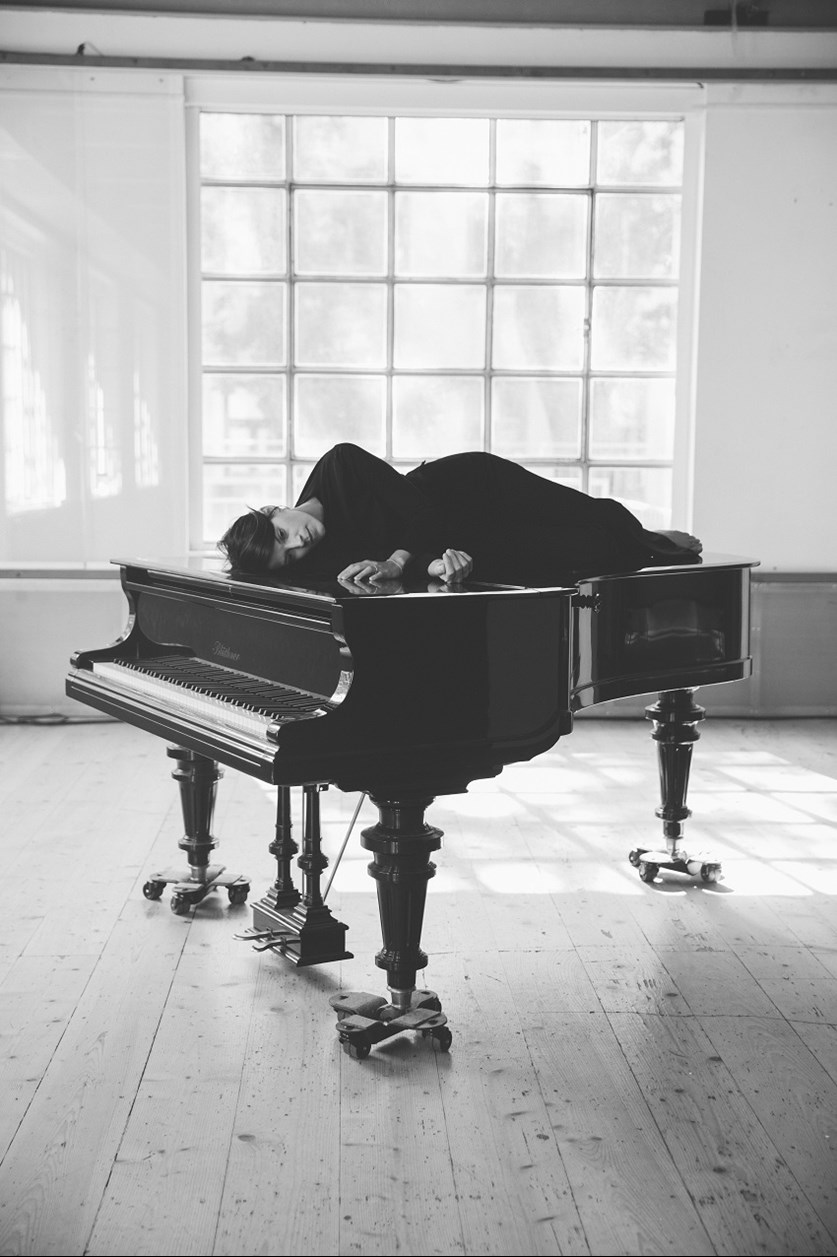
© Ina Aydogan
You're a great improviser. When you were a child, you were improvising... What kind of music was it ?
Verena Zeiner : I don't really know if you can call it a style. I simply played and probably you could hear all the influences that I had. Partly maybe classical piano training. Later as a teenager, when I transcribed Pop songs and knew a little bit of jazz vocabulary - it was just a mixture of things, without any label. I only know that it always felt much easier for me to improvise than to deliver a classical piece without any mistakes. I was always very afraid of making mistakes and it was a high pressure on me. Also, when I performed and when I had to play in front of an audience… Something in me realized at a very young age, that it is more my personality to not knowing what I'm going to play and improvise something, invent something in the moment, than trying to recreate a composition.
That must be a magic moment for you to be in front of your instrument at this keyboard and start creating out of nothing…
Verena Zeiner : Yes. I mean, I don't know… I only notice from looking back, because when I was a child, in these moments, I didn't decide it consciously. I just played, it just came out. I found my way of dealing with the subject without being really aware of it. Now I know myself and my personality better. I know better how I function. I know that I want to make music but I don’t want to deal with the pressure of interpreting music and being a classical pianist. So I play, create, improvise my own music… And from today’s perspective I also know the value in that.
I believe you are answering to my next question: why did you choose jazz and improvisation ?
Verena Zeiner : It’s just more fun for me. It's not only the music, but it's the attitude that comes with the music. It's the attitude that I saw and experienced in improvising musicians and jazz players. I always felt more connected to the people. Yes, to the people who did it, to their feelings, their emotions… Hmm. It all spoke to me more than performing a classical piece. Until today! I cannot feel so deep into classical pieces as I can feel into a jazz performance. It touches me somewhere else. Hmm.
How does this magic composing process takes place in your music ?
Verena Zeiner : It has different dimensions and it happens on different levels of my human nature. I start with the obvious part. It's the knowledge about music. It's knowing how music works. Studying music, analyzing music with, you know, all the great composers that I played pieces from. This is the intellectual part of making music. And then there's a very important part for me: it is the the physical and bodily level of making music.
This is something that comes from another topic that I studied. It is called Music and Movement Education (or Eurhythmics). It’s a field where music and movement are always connected. So I had this training in body work and training in expressing music through my body and the other way around, finding music to movement and dance. It's a field I'm still working in and that connected me very much to my body.
I learned a lot about how I function. How are the connections in my body? How do my muscles work? How is my anatomy? How does my nervous system work? My body connects me to a moment, connects me to a place, and it's where everything else happens. It's the basis of everything that happens in music, I can only work on an intellectual level when I work on a bodily level.
Then there is the dimension of emotions. How does my body influence emotions?. How do emotions influence my body? How do emotions influence my thoughts?
That’s how I approach music. When I perform I’m connecting all the levels. Sometimes I start on one and go to another one. I learned that it influences my music a lot… Especially when I play solo, I have to know how to deal with myself and where to go in myself to find music.
And sometimes my body gives me the music. Sometimes my thoughts give me the music, sometimes my emotions and ideally they all work together. Then it feels like a meditation. As if I lean back and let the things happen, basically. I do make conscious decisions, of course, but it feels like I’m not doing anything. This is the most delicate part of making music… And I'm not there all the time. But it's the goal to go to, you know? The best concerts are concerts where I feel that I haven't done anything, but I just let it.
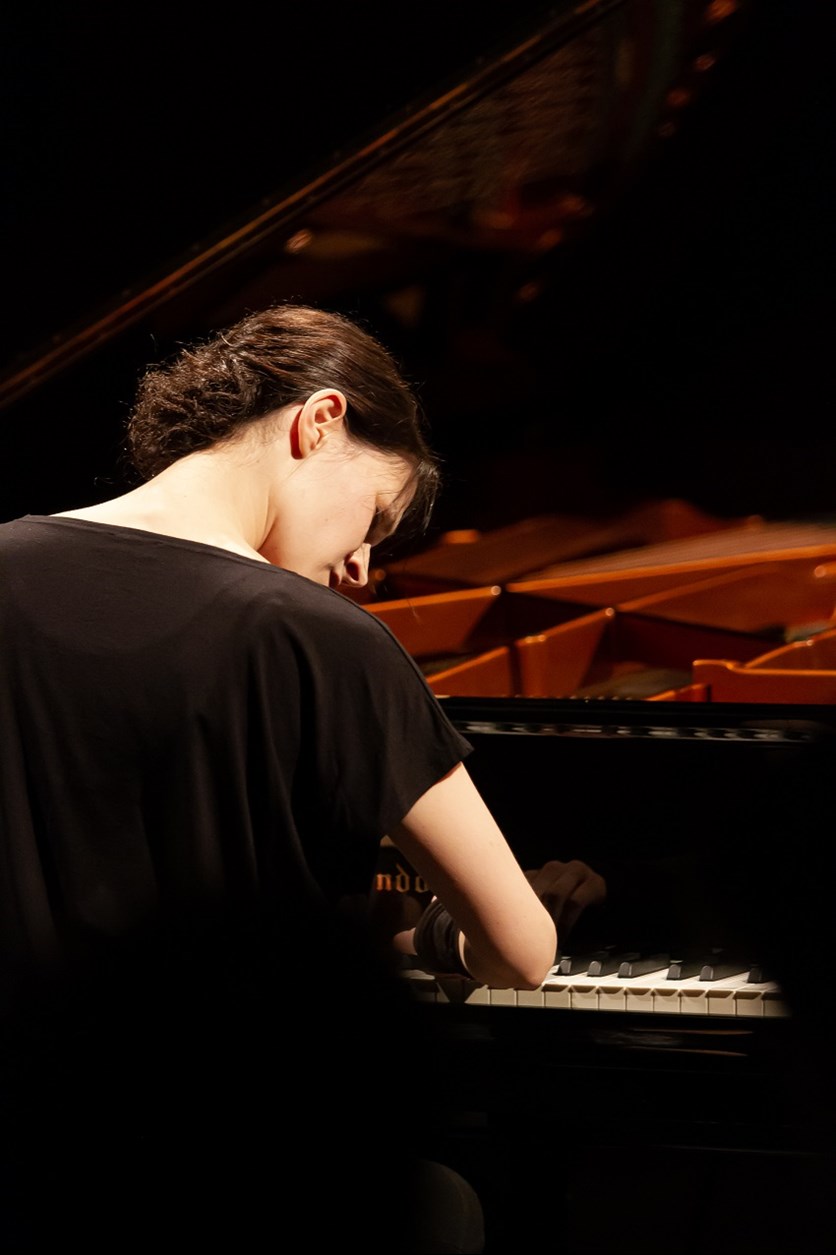
© Paul Zeiner
So it's like that. Putting things in balance ?
Verena Zeiner : Indeed.
At the same time letting it flow ?
Verena Zeiner : Yes, it really is like a meditation. Flow is a good word too. Flow is what you have when you are connected on all your levels within yourself.
Verena this is kind of an obvious question: You're Austrian, a jazz musician artist... What is the role of the Austrian music with these huge composers like those you were mentioning before ? They also improvised. I didn't know that guys like Mozart, Haydn, Bruckner, the Strauss family and other musicians that I don't even know, improvised. Somehow in this classic music realm how they have had an influence in in your music, maybe in the way you compose ?
Verena Zeiner : Well, all of them are very present. When you are a musician in Austria, when you study music at university, of course you get to know all those composers' music.
And almost all of them composed for piano. So, you are dealing with the material, you're learning the instrument through their compositions because this is what is available. I decided to go into Jazz and didn't dig deeper into their music. But I appreciate the music. I listen to it…
But it’s a bigger topic. Now I know, that their music and their presence is also quite intimidating for me and always was. And when I said before that I didn't realize that it was something special that I improvised, it was also because everybody is saying that for example Mozart and his music are special. Or, you know, Mozart is recognized art. And it seems that it’s not so easy to feel and see value in anything else…
I mean, I don’t want to call myself a Mozart… But is the value of what I do less than the value of what Mozart did?… it can be frightening… Sometimes I even think: luckily all those composers and their presence didn't stop me from making music because they intimidated me so much.. You know?
It's a tough answer.
Verena Zeiner: Yes.
What is the message you try to convey in your music ?
Verena Zeiner : I find out more and more that my message is not, that I want to bring a message into the world, but the message happens when I bring a message to myself. So, I discovered that making music for me is more a way to manage my life. It's a thing I have to do to live or to be able to make something purposeful in my life. And one purpose is, that it brings me 100 percent to myself, it brings me in the present moment. Especially in the last year, the year of the pandemic, the question came up a lot: What is the purpose or what sense does it make that I make music when we all are dealing with the pandemic?
I had to find this answer again, that the purpose is: it makes me a present person. It makes me a person that is more in balance, and a person that knows how to gather her attention in the moment. And when I spend time at the piano, when I spend time dealing with music, I know I don't have fears and I don't have anxiety and it does something very positive to my whole system. And I think my energy in those moments does something to the energy of other people, who maybe listen to my music. It's what they can take from it and not so much that I want to give them a special message… Sometimes when I compose or when I do my albums, of course, there are topics that are present in my life and I transfer them to music. Or music is a way for me to deal with these topics of life, the topics that everybody else has in his or her own life.
And when I have a personal story, when I have a personal purpose while I'm playing, then there is a kind of energy that travels. Of course people in the audience don't have the same story going on, but they have their own stories. It doesn't really matter if we share the same story but we share something in that moment.
When I have a story, they have a story. When I have a feeling and a purpose while I’m playing they probably also feel a purpose, but it's their own purpose. And it's nothing I am in control of. When I play I hope it resonates in people…
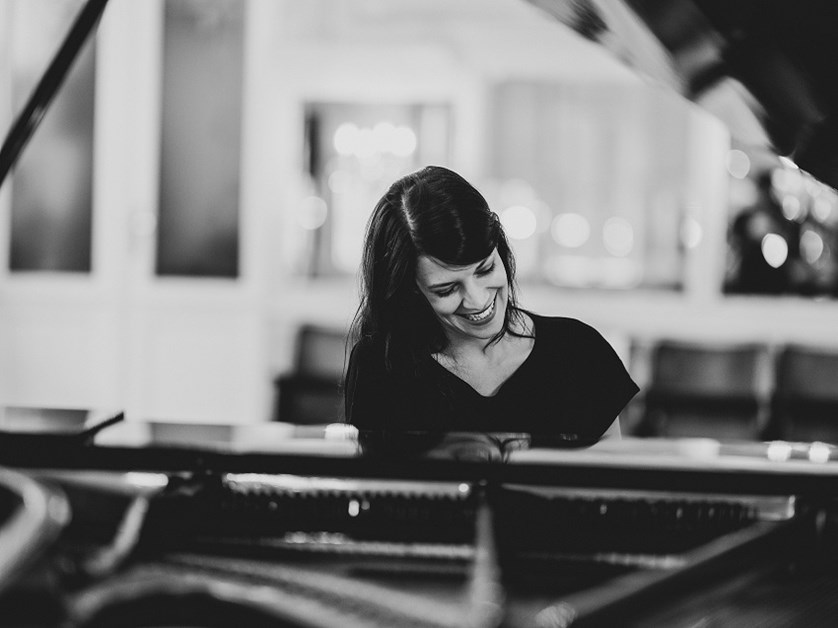
© Stefan Sappert
What inspires your music ?
Verena Zeiner : Everything and nothing (laughs). No, but my music is usually inspired by very personal things that life shows me. My daily life as a human being and as a woman gives me topics. And when it is important enough, then I have to stay with it for a longer time. And then it's easier for me to translate it to music and to transform it through music. Music is my way of channeling things and topics.
You have kindly shared with me this couple of solo albums. The first one called ”In between now and then”, and the second one “No Love Without Justice”. How would you describe the songs in these two albums ?
Verena Zeiner : The first one “In between now and then” was an album that I created over the time span of almost two years. I wanted to explore what the outcome is, when I take infinite time, basically. When I can rework music, that is already recorded. Do it again, as often as it takes, until I have the feeling that it totally sounds like me… I wanted to work like a painter. Or at least it’s how I imagine a painter’s work (laughs), because there are probably a lot of different ways to be a painter… To me it seems they paint and paint and paint, and one day they decide, OK, now it's done. So, I wanted to work like this. I took a lot of time, did a lot of home recording with the help of a friend, a technician, who f.e. put microphones in my apartment for a whole week, so I could work and record whenever I felt like. I was just by myself, which was very important.
There is one particular piece that is called “Nude with Amber Necklace”. It’s the title of a painting from Paula Modersohn-Becker. She was an expressionist. In art history this painting is said to be the first known nude, painted by a female artist. I think it was painted in 1906 (or something around that time) in Paris, where she spent some time. She died very young, but in a way she influenced me. I read her biography. I studied her a little bit and I think we have a lot in common, and for some reason she keeps being an important inspiration for me.
And the second solo album was the outcome of a period where I was dealing with love.
What does love mean? How do you live love as a human being, especially as a woman these days? What does it mean? What are the patterns of love that you get to know, that have nothing to do with love? What can be a creative way to live love?… I’m talking about love in general. Love in all kinds of relationships - with your children, with your family, friends or lovers. I mean, it's the topic of life, right? How to live love… I had a time where I also read a lot about it. One author was very influencing for me. Her name is Bell Hooks. She's an American writer. She wrote very intelligent and smart books about love. And she also „gave“ me the title, or at least a topic for a title, which is “No love without justice”. The piece “ A Female search for love” expresses thoughts like: How do I find love as a woman in my music, with my music, as a female artist?
As a woman who has the profession that she has? Who also likes independence (or at least likes to think she's independent)? How do you find your way to love in that context?
Has the emphasis on the role of female artists and or musicians played a role, an influence on your art, on your music? for example, this great project Fraufeld that together with some other Austrian female artists you have created and actually you're the founder and currently you lead. Has it played a role ?
Verena Zeiner : Well, I'm still leading it. I founded this at a time when I almost wanted to stop being a musician, some years ago. I was quite exhausted and I just didn't know how to go on with it. Luckily I met the right people at the right time and realized that my questions also had a lot to do with me finding my place as a woman in this world… I realized that all my musical career, I had not a single female musician as a teacher in Jazz or as a role model. I was not introduced to them. I had women as teachers in classical music, but in Jazz, I only had men as teachers. Also, I only listened to music made by men because this is what was present and visible. No one showed me something else. I know that they did not do this consciously. Womens’ music in Jazz was not around, for me… Of course, that meant that I was dealing with a certain kind of approach to music and with a certain kind of energy that I tried to copy. Because this is how you learn playing jazz, you copy, you transcribe, you copy the vocabulary of men, for many years. And I started wondering if this disconnected me from my own music, sort of, because it disconnected me from my own being and from me being a woman… It’s not so easy to explain. But those realizations made me reach out to women, to fellow musicians… I found out that a lot of times we have similar thoughts, but we don't talk about it. And then we found that we have similar issues and we maybe need to find a way to support each other better, to feel each other, know each other, so that everyone of us can go her own way better… This is how it all started. It's a platform. We produce compilations to make musicians visible. It's not that women didn't exist in Jazz and improvised music. But they are not visible. We need to be more visible for ourselves and for the next generation. We need to be the role models for the next generation, to make it easier for them. So this is why this platform is there too: To create role models, to be visible, to connect to each other. As a group we can be a little bit louder and present. To festival producers, to bookers and to the media… It's a lot of work, but it's a good project and I'm very happy with my team of musicians.
Yes indeed Fraufeld is a fantastic project. You are about to launch the third album very soon. How would you describe the current situation of Jazz in Austria ?
Verena Zeiner : I think there are lot of interesting things going on, especially in the last years. There are a lot of great musicians around, young very creative people with very unique sounds. I find it interesting and I think it got more interesting in the last, I don't know, five, six years. That has a lot to do with certain schools in Austria, in different cities, that „produce“ very interesting musicians… it's quite diverse.
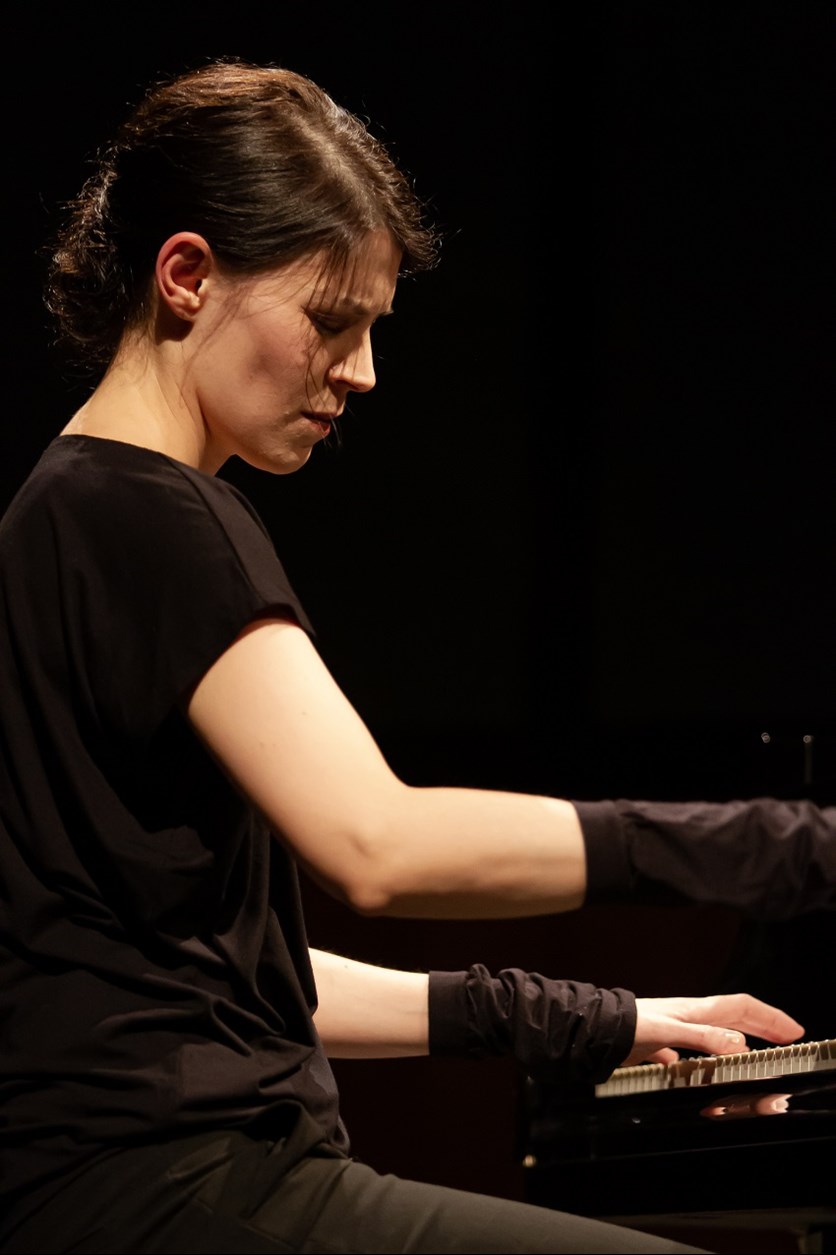
© Paul Zeiner
Many musicians are coming from the Bruckner University…
Verena Zeiner : Yes, that's a really good school for improvised music.
We have Nordic jazz, we have French. But do you believe there's a distinctive feature that allows us jazz lovers, new jazz musicians to say there's an Austrian jazz ? And if so, why ?
Verena Zeiner : That's a hard question, because I agree - there is something like Scandinavian jazz. I also think that, for example, Israelis have a certain style of playing jazz or also French musicians. But it's much harder for me to say this is the Austrian way. I don't know. I cannot say how the Austrian way of making Jazz really sounds… I don't have an answer to this. Maybe it's because I'm too much involved.
I've heard that kind of answer from female musicians like the young Duo Hofmaninger-Schwarz. They say kind of the same thing. Interesting. Okay, that's European jazz...
Verena Zeiner : Yes.
Here comes a very tough question: What is your experience, especially you as an artist, as a musician living in Austria and as a composer living with these ubiquitous dystopian moments we all go through since almost 19 months ago ?
Verena Zeiner : For me personally - and this is a very personal answer - it was a very positive time, because I didn't have to deal with existential problems. I also teach at the university for music, so I had a job that continued, meaning I had income. And because I had my income, I could use this time for creative work. And of course, in the beginning, I also felt the fear and the panic. But very quickly I found that it was a very healthy thing for me to happen because I was really overworked, exhausted and needed a break… This pandemic gave me my break. But of course, outside of my own bubble, it's a tough situation… I do think that it's an important situation because we all had to rethink our way of life, of living. I don't know if it will last or not... I know that a lot of new things happened. People got very creative and I think there are things that we will take with us, even if the pandemic is over. I know that everybody experiences the situation very differently, and that's why I cannot give a general answer. But my personal answer is: I was grateful to get the chance to breathe.
Despite the mask...
Verena Zeiner : Despite the masks, exactly.
Has this period inspired you to compose new music ?
Verena Zeiner : It did. As I said, I needed to answer the question: "What purpose does it have: me being a musician in this craziness?" But I found it very fast. It’s a question that comes up regularly in my life and I'm always getting the same answer. The one that I already told you: it makes me a more balanced person, and that's why it makes sense in the world. I can contribute to the world in general because I'm in a good place… But yes, I composed and I also produced two albums that will be released this and next year. There are new collaborations in duos, after doing a lot of solo work the last years…
When are these albums going to be launched ?
Verena Zeiner : One is going to be launched on November 30th, it's with Wolfgang Schloegl. He's an electronic musician from a completely different scene. We met only a year ago and decided quite spontaneously that we want to work on an album together. So we did. It was done in two months, basically…
And then I recorded an album with Israeli drummer Ziv Ravitz. It’s a piano/drums-duo, and it will be released in January 2022.
Your album with Wolfgang Schlugl is called “Magic Wall” right ?
Verena Zeiner : Yes, “Magic Wall”. It was our magic wall, sort of. The title of the duo album with Ziv is “The sweetness of finitude”.
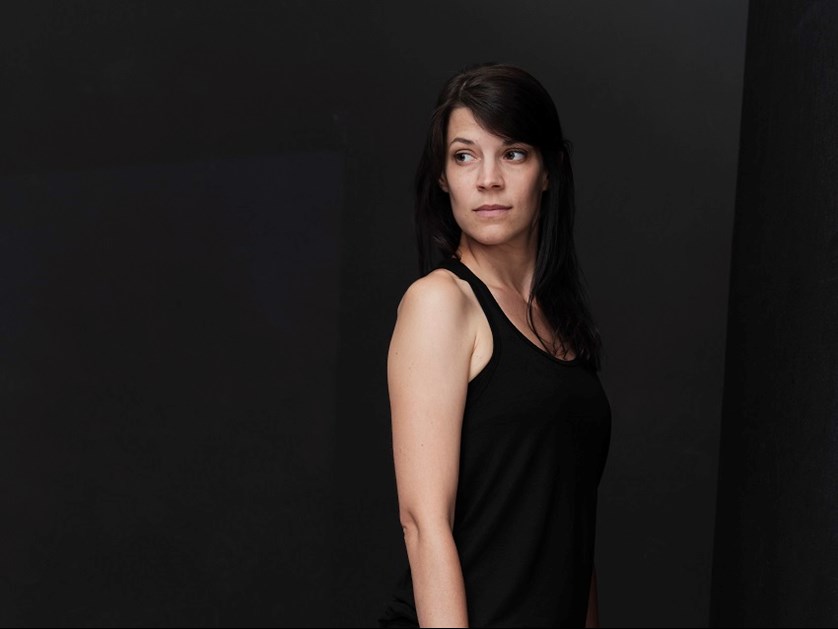
© Ian Ehm
These are kind of new projects, but besides these ones, do you have new projects in regards to groups, duos, trios, bands or even tours for the remaining part of 2021 ?... a very mysterious year. And for 2022 ?
Verena Zeiner : Well, I hope that we I can play concerts with the duos. I'm in the process of booking concerts right now. It's always a hard process. A lot of things got postponed…
But we will have some concerts, I guess, in the next 12 months… I’m going to record an Ö1 radio session in August 2021 with bass player Vinicius Cajado. He's a Brazilian bass player who lived in Austria, then spent two years in New York, now he came back. We play regularly two times a week. We improvise a lot and have time to find our music. Playing with him is a real treat.
Besides being a great musician and composer, you just mentioned you are a teacher at the University of Music and Performing Arts here in Vienna. And you have written two books as well. Can you briefly describe your approach as a writer ?
Verena Zeiner : Yes. Well, one of the books was based on my master's thesis. It's about ear training through movement. And it was published more than ten years ago. I would write it differently these days… I would approach it differently, not the content, but the way of writing. The other book is a children's book. It is based on a theatre play with music. All the musicians that were involved, composed music for the piece. Afterwards we recorded the music and made the book.
In 2020 you have been awarded with a “Anerkennungspreis des Landes Niederösterreich”. Please tell us a little bit more about that prize and what brought you there. And the feeling, of course…
Verena Zeiner : It's the first award I've ever received in my life. I was surprised, really surprised. It was also a product of the Corona years, because I had time to submit what I have done until now… I'm very grateful for that. And still surprised.
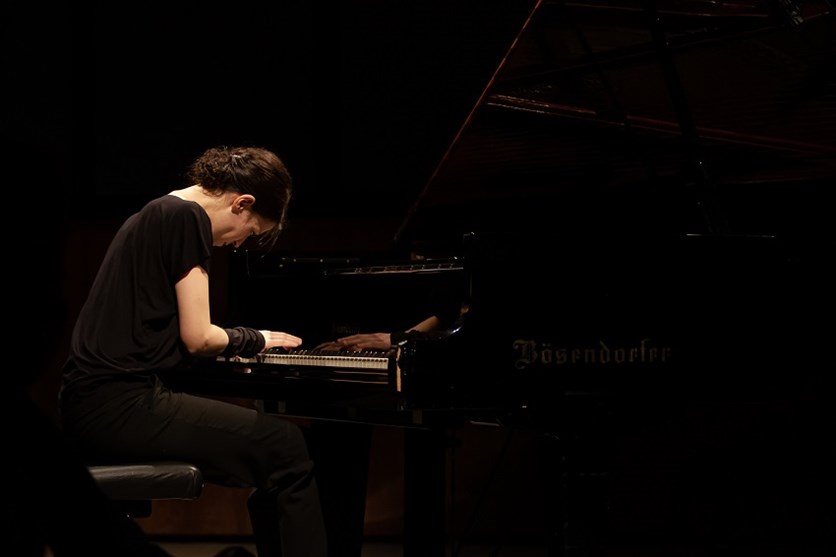
© Paul Zeiner
Besides your two solo albums you also have four albums you have made with other projects. One is Klio. Would you please describe it a little bit ?
Verena Zeiner : Yes, Klio is a Quartet. It's Judith Ferstl on bass. She's a great musician. Then Mathias Koch on drums and Philipp Harnisch on saxophone and myself on piano. At the moment we don't play. The drummer decided to take a break from playing for a while. So we stopped the band because it's a band that really depends on the four characters (laughs). You cannot replace someone. That's what we discovered… This album is about four years old and we all developed since recording it. I think we all sound differently now. But the music has a quality in how we play, create and feel together. We all like - how should I say? - simplicity. The compositions we have are just frameworks, and there's a lot of space for improvisation. We recorded some pieces live, with audience.
I'm going to jump to a very interesting part of your life for us who live in Brussels, Belgium... You lived and studied in Brussels some years ago before leaving for some time to New York City, and you were studying at the very famous Royal Conservatory of Brussels. What was it like to meet Belgian musicians and having a Belgian teacher on the piano and people from other countries ? Did this experience inspire you to compose some of your music later on ?
Verena Zeiner : Well (laughs), it was one of the most important times and years in my life as a musician. I went there when I was 24, 25 years old and I didn't know what to expect.
I just wanted to get out of Vienna and came to Brussels. Luckily I ended up having the best teacher that could happen to me. He was the first teacher who, I think, really took me serious in my wish to become a musician. Until then I had teachers who were fast happy with what I did and I always had a feeling of: “How is that possible, when I know myself that I don't practice enough. I don't even know how to practice. How can you be so content?”. But I was also too young to express all of this. I didn't know it better. I didn't know what questions to ask. But then I came to Belgium and met Diederik Wissels. He was the first who heard me play and said “OK, I know where you want to go to, but I also hear that you cannot do this and that yet. But it's OK because I can show you the way. I can tell you what to practice”. It was the first time someone told me this so honestly and clearly. So, I started to practice. He realized that I'm a worker, that I want to learn and we have developed a good student-teacher relationship. That was very inspiring. He saw that I was serious in my wish to become a musician so he took me serious too. I'm still very grateful… Diederik composes and plays wonderful music. He totally changed my way of composing and listening to music and introduced me to a completely different sound and music… My time in Belgium really shaped my musical language.
Later, after I finished my studies in Vienna, I went to New York. The city is full of great musicians, and I realized, ok, wow, I can learn so much here. With a grant from the State I could stay there for half a year to compose, to listen to music and learn a lot… This was 10 years ago. It was the time when I got to know Ziv Ravitz. He is also one of those very important musicians in my life who changed my perspective of making music when I was listening to him.
And luckily, we also got to know each other, stayed in touch over the years. He is also very good in giving feedback. It was never in a way that devastated me, but in a supportive way. It means a lot to me, that we recorded the album together… In a way it is a circle that closed this year, through making this recording with him.
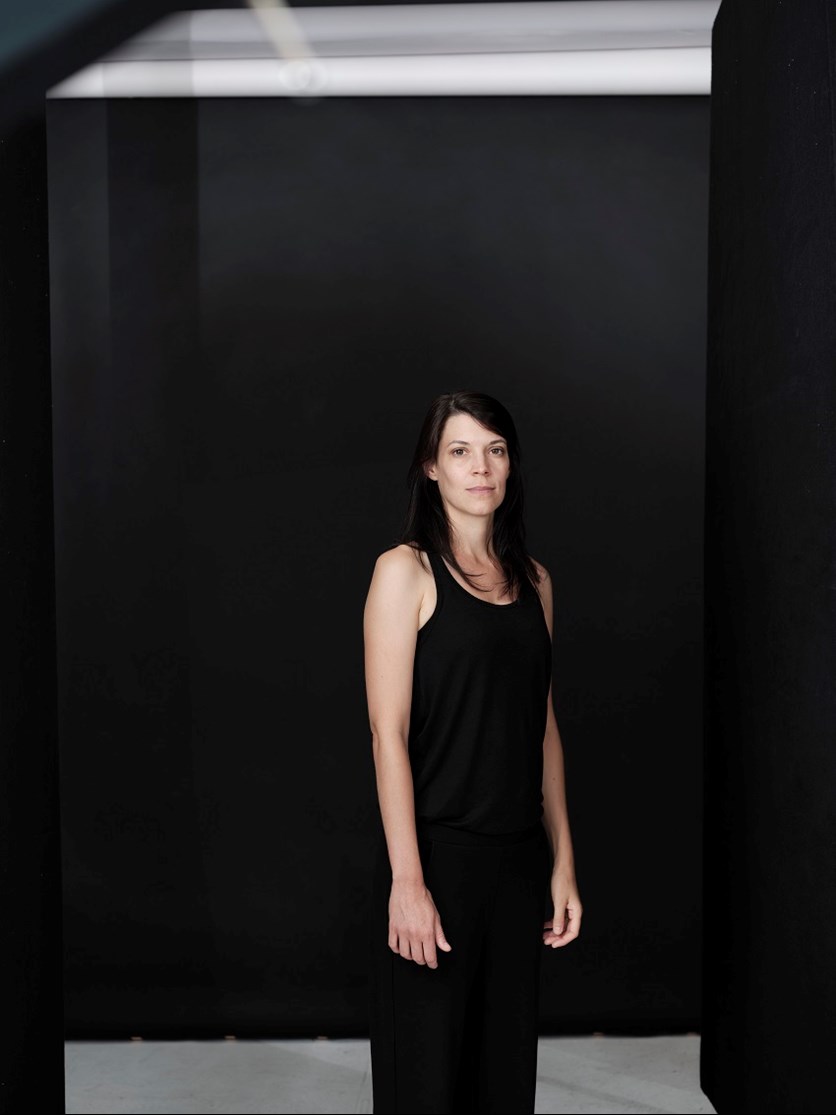
© Ian Ehm
Is Belgium part of your musical projects' tour ?
Verena Zeiner : Not yet. I would love to. I'm trying to.
Well Verena, that's an amazing conversation. I really thank you endlessly for this opportunity to meet you and especially for sharing these great moments with your thoughts, your experiences with your music…
Verena Zeiner : Of course. Thank you so much.
Text © Federico Garcia - photos © Ina Aydogan/Stefan Sappert/Ian Ehm/Paul Zeiner
A collaboration with Jueves de Jazz
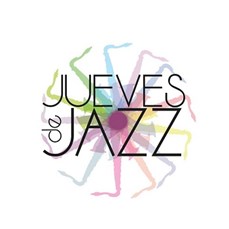
Other
In case you LIKE us, please click here:

Foto © Leentje Arnouts
"WAGON JAZZ"
cycle d’interviews réalisées
par Georges Tonla Briquet

our partners:



Hotel-Brasserie
Markt 2 - 8820 TORHOUT

Silvère Mansis
(10.9.1944 - 22.4.2018)
foto © Dirck Brysse

Rik Bevernage
(19.4.1954 - 6.3.2018)
foto © Stefe Jiroflée
Philippe Schoonbrood
(24.5.1957-30.5.2020)
foto © Dominique Houcmant

Claude Loxhay
(18/02/1947 – 02/11/2023)
foto © Marie Gilon

Pedro Soler
(08/06/1938 – 03/08/2024)
foto © Jacky Lepage
Special thanks to our photographers:
Petra Beckers
Ron Beenen
Annie Boedt
Klaas Boelen
Henning Bolte
Serge Braem
Cedric Craps
Luca A. d'Agostino
Christian Deblanc
Philippe De Cleen
Paul De Cloedt
Cindy De Kuyper
Koen Deleu
Ferdinand Dupuis-Panther
Anne Fishburn
Federico Garcia
Jeroen Goddemaer
Robert Hansenne
Serge Heimlich
Dominique Houcmant
Stefe Jiroflée
Herman Klaassen
Philippe Klein
Jos L. Knaepen
Tom Leentjes
Hugo Lefèvre
Jacky Lepage
Olivier Lestoquoit
Eric Malfait
Simas Martinonis
Nina Contini Melis
Anne Panther
France Paquay
Francesca Patella
Quentin Perot
Jean-Jacques Pussiau
Arnold Reyngoudt
Jean Schoubs
Willy Schuyten
Frank Tafuri
Jean-Pierre Tillaert
Tom Vanbesien
Jef Vandebroek
Geert Vandepoele
Guy Van de Poel
Cees van de Ven
Donata van de Ven
Harry van Kesteren
Geert Vanoverschelde
Roger Vantilt
Patrick Van Vlerken
Marie-Anne Ver Eecke
Karine Vergauwen
Frank Verlinden
Jan Vernieuwe
Anders Vranken
Didier Wagner
and to our writers:
Mischa Andriessen
Robin Arends
Marleen Arnouts
Werner Barth
José Bedeur
Henning Bolte
Erik Carrette
Danny De Bock
Denis Desassis
Pierre Dulieu
Ferdinand Dupuis-Panther
Federico Garcia
Paul Godderis
Stephen Godsall
Jean-Pierre Goffin
Claudy Jalet
Chris Joris
Bernard Lefèvre
Mathilde Löffler
Claude Loxhay
Ieva Pakalniškytė
Anne Panther
Etienne Payen
Quentin Perot
Jacques Prouvost
Renato Sclaunich
Yves « JB » Tassin
Herman te Loo
Eric Therer
Georges Tonla Briquet
Henri Vandenberghe
Peter Van De Vijvere
Iwein Van Malderen
Jan Van Stichel
Olivier Verhelst



